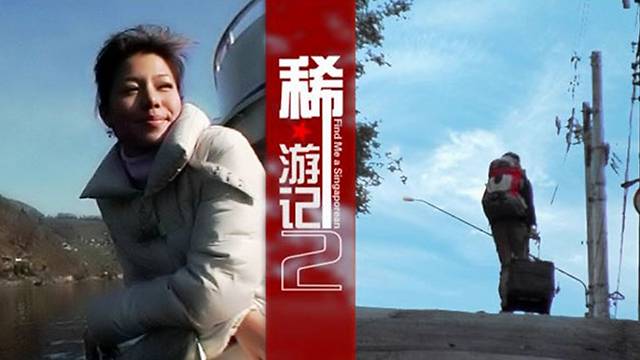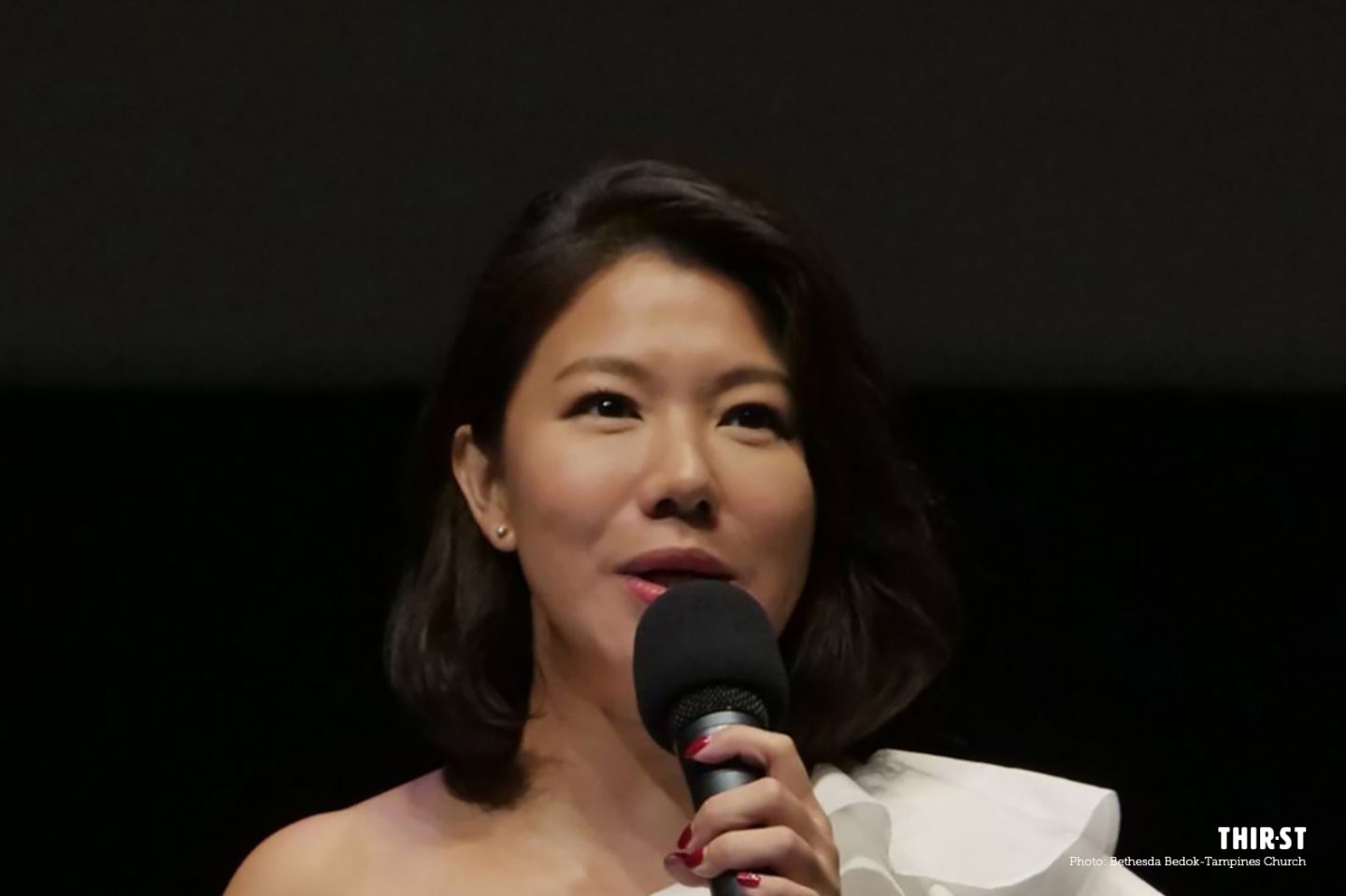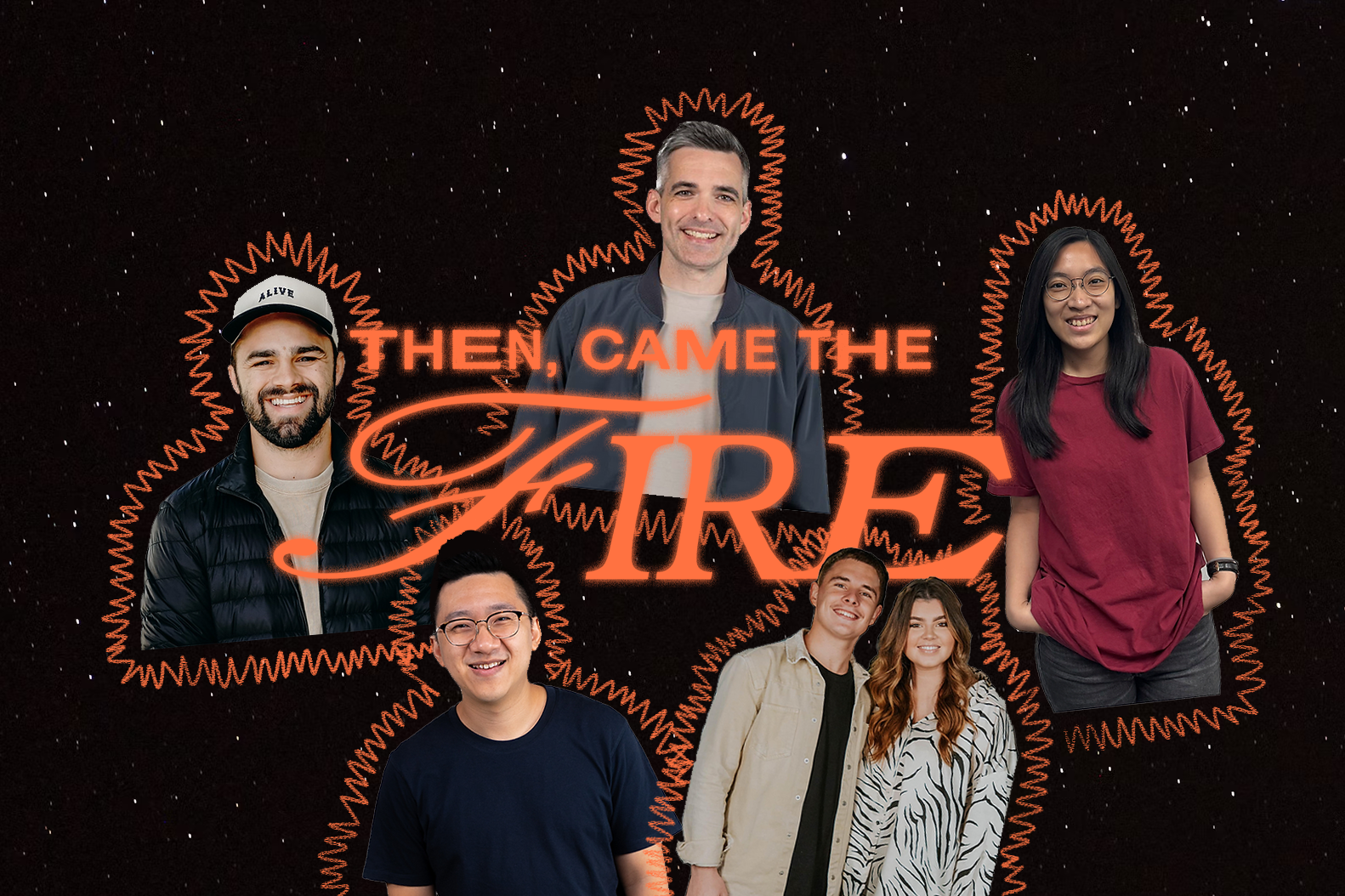Artiste-host Belinda Lee is no stranger to most Singaporeans. You’ve seen her on TV, at the Star Awards (where she was voted one of Mediacorp’s Top 10 Most Popular Female Artistes four times), in adverts for her various endorsement deals, and even on the cover of the book she authored.
But while she seems to permanently be in the limelight, her past was far from glorious.
“I wasn’t born with a silver spoon in my mouth,” Belinda shares.
Belinda’s parents had three children to feed – she was the youngest. To make ends meet, Belinda’s mother took on various odd jobs, ranging from babysitting to sewing umbrellas, to folding joss paper or drying ikan bilis in baskets under the sun.
Each job paid a meagre wage – hence, every dollar and cent Belinda’s parents earned was precious.
“I felt that no one loved me, that I was nobody’s child.”
“As children, we were taught to be as thrifty as possible. My schoolmates would buy a few sets of school uniforms a year – but I could only afford one set a year. And I had to wear my school shoes till they were completely worn out and had holes in them.”
She adds: “Because of that, I was often judged and looked down upon by my school teachers and friends. Because of my shabby appearance.”
For example, Belinda says, as a Primary 1 pupil, there was an occasion when Primary 6 seniors came to bring their juniors to the canteen. One by one, they picked other children, until in the end, Belinda was the only one left in the classroom.
“没人选我。没人带我去吃东西。我觉得好难过,很伤心 。” I was so sad that no one chose me.
“At seven years old, I picked myself up and went to the canteen to eat alone.”
PICKED ON AT SCHOOL
She didn’t just feel judged by her fellow students, but by teachers as well. A teacher once made her stand on a bench as punishment, in front of her classmates.
“It was like I was standing on a stage so that everybody could see me. My teacher pointed her finger at me and told everyone that I was a bad role model. She said, ‘Don’t be messy like her! Look at her – she’s like a jungle girl. You must never be like her.'”
Aged about 8 or 9, young Belinda learnt the meaning of humiliation.
“I had never felt so ashamed, so rejected, and so condemned in my life. I felt that no one loved me, that I was nobody’s child,” she says.
“Since young, I’ve always yearned for acceptance, but no matter how hard I tried to please others, I was never accepted.
“I never had any words of affirmation when I was a little girl. I grew up believing that I was a low-life – people told me I would be doomed to fail when I grew up.”
INSECURE IN LOVE AND WORK
And true enough, life as a grown-up did not get any better. Belinda admitting to looking for love and acceptance in the wrong places.
“I had one failed relationship after another, and I’m not proud of it. All I was searching for was security and a sense of belonging with the man whom I was with,” she confesses.
She plunged deeper into darkness after each broken relationship. With her love life in a mess, her career wasn’t doing much better, with Belinda battling deep insecurity in her early years in the entertainment industry.
“I was very concerned with how people would look at me – do they like me? Do they not like me? The public’s opinion mattered so much to me that I became a people-pleaser. I would only say yes, and I would never say no. I didn’t dare to stand up for myself.
“I was afraid of offending or rejecting other people because I was afraid of being rejected.”
“Some would see me on the streets, come up to me, and tell it in my face that they would switch channels whenever they see me on TV.”
This led to her taking on projects she wasn’t comfortable with. In her own words, “I wasn’t exactly in my element hosting wacky variety shows. I just didn’t know how to be strong and to be something that I wasn’t.”
And if she didn’t like her own performance, the audience felt it all the more.
Recalls Belinda: “Some would see me on the streets, come up to me, and tell it in my face that they would switch channels whenever they see me on TV.”
It got so bad that Belinda was once voted “turn-off of the year” by a local newspaper.
“It was a very big blow to me. I tried my best, but my best was never good enough.”
Over time, she grew detached from work. Belinda was miserable – and on the verge of giving up.
FINDING HOPE
“I was still living life and resolving issues based on my own strength, but I was so tired,” she recalls. She was a Christian by then, but “still had no faith in God”. She questioned God: Did He even know or care about her situation at all?
She slipped into depression and wanted to end it all – both her work and her life.
At this lowest point of Belinda’s career, her company called her and told her about a new travel show, Find Me A Singaporean, which required her to travel off the beaten track around the world in search of Singaporeans in unique places.

But even this silver lining began with a dark cloud. “The reason they chose me was because another host wasn’t available. I thought to myself, ‘Huh? Why am I always the second choice? Why can’t I be the first choice?'”
Why am I always the second choice, she wondered. When Belinda hung up the phone, she wrestled with God.
“If this is a project that is planned by You and given by You, then You perform a miracle,” she told Him.
“I told Him what I wanted. I said I wanted the show to be on prime time, so that it would touch and impact the lives of many. That was my specific prayer,” Belinda recalls.
God answered that prayer. Find Me A Singaporean was aired on prime time. Starting with an airtime of half an hour, it got so popular that it later became an hour-long show.
“Most importantly, the stories that we featured were so inspirational that many viewers wrote in to share with us how impacted they were by the show.”
For example, while filming an episode in a rooftop shanty town in Hong Kong, Belinda realised that it was a misconception that Hong Kong is a city of affluence. In reality, poverty exists in Hong Kong too – families live in cramped rooms on the rooftops, in fear of bad typhoons. These houses are easily destroyed in extreme weather.
In that tiny, rickety house, Belinda allowed her conscience and emotions to guide her. Through hosting Find Me A Singaporean, Belinda experienced God’s overflowing love and compassion for the poor and needy.
“For the very first time in my life, I felt that I could afford to be the real Belinda on TV. While filming, I could cry whenever I was moved, and smile or laugh whenever I was happy. I didn’t have to pretend to be something that I am not,” says Belinda.
BROKEN TO BE A BLESSING
She says it was then she came to understand how her difficult childhood and numerous setbacks in life helped her grow a heart of empathy.
“If I had never tasted what it was like to be poor, rejected, condemned, abused and depressed, I would never have been able to understand and feel the pain of the people whom I have interviewed, and even weep silently with them.”
Now, Belinda believes that God worked through her brokenness to prepare her for His work.
“God has chosen to use my past hurts and weaknesses for His greater purpose. He has seen me go through brokenness, so that I can be used as His vessel to reach out to the broken-hearted, to be a mouthpiece for Him, to be a voice for the voiceless, the rejected, abandoned, wounded and depressed,” reasons Belinda.
“It was very, very clear that all God wanted for me to do was to stop pleasing the world, just go please Him alone.”
Through her travelogue, Belinda also had the opportunity to become the goodwill ambassador for World Vision, a non-profit Christian humanitarian organisation – a role she remains involved in. Her experiences with her travelogue also inspired her to write her book, Larger Than Life: Celebrating the Human Spirit.
In 2016, Larger Than Life won Popular book store’s Readers’ Choice Award.
Says Belinda, who had grown accustomed to rejection, of the accolade: “I was overwhelmed.”
SCHOOL OF FAITH
As she closer and closer to God, Belinda felt a desire to go to Bible school.
“I took that leap of faith and took six months of no-pay leave. But many people talked to me and told me, ‘Belinda, are you crazy? It’s not a wise move if you want to do well in the industry. You shouldn’t take leave. You should work very, very hard.'”
But for the first time in Belinda’s life, she “did not go around seeking advice and approval”, she says.
Twenty-eight days after Belinda started school, she attended Mediacorp’s annual Star Awards ceremony. She went to the awards ceremony with Matthew 6:33 – Seek HIM first! – engraved in her heart, and ended up bagging three awards that night.
She made sure to thank Yahweh – God – on stage.
“The reporters actually asked me who was that ‘Yahweh’ whom I thanked on stage,” Belinda says, laughing at the memory of how the media thought it was the name of some romantic interest.
“It was clear – it was very, very clear that all God wanted for me to do was to stop pleasing the world, just go please Him alone.”

OUT OF THE COMFORT ZONE
Belinda left Mediacorp at the beginning of 2017, a choice she made in order to get out of her comfort zone, to pursue a greater purpose in life.
“Was it difficult? Yes. Was it a struggle? Yes. Did I take a long time to think about it? Yes,” she admits.
“But I knew I had to do this. I chose to get out of my comfort zone to pursue a greater purpose in life.”
She appreciates the freedom of being able to decide on her schedule, so she can prioritise serving God. The lack of a fixed contract means she’s learnt how to depend more on God, to trust Him no matter what.
It’s a lesson she is learning how to apply in every area of her life. As she looks back at the mistakes she’s made, and sees how her life has turned around, she knows it can only be the grace of God at work.
“I gave my heart to all the wrong people. They abused it, even crushed it, and threw it away,” she says.
“But the moment I gave my heart to Jesus, not only does He cherish it, He actually engraved my name in the palm of His hand (Isaiah 49:16) – that’s how much I knows He loves me.”









